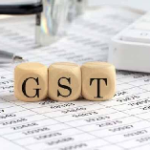Chief Minister Hemant Soren announced that the INDIA bloc, comprising the Congress and Jharkhand Mukti Morcha (JMM), will contest the upcoming Jharkhand assembly elections together. Of the 81 assembly seats, candidates from the Congress and the ruling JMM will contest in 70 segments.
Soren mentioned that while seat-sharing talks are still ongoing, final details will be confirmed once all alliance partners, including the Rashtriya Janata Dal (RJD) and Left parties, are on board. The remaining 11 seats will be distributed among these partners. Voting in Jharkhand will take place in two phases, on November 13 and 20, with vote counting scheduled for November 23.
Seat-Sharing Breakdown
In the 2019 elections, the JMM contested 43 seats, and Congress 31, but this time Congress is likely to contest between 27 to 28 seats, sources suggest. The JMM, which sees Hemant Soren as a key figure, is expected to increase its share, as it believes the grand alliance will gain votes due to his leadership.
Left Parties Joining the Coalition
The Communist Party of India (M-L) and Marxist Coordination Committee (MMC) have expressed interest in joining the alliance. In the last elections, the RJD contested seven seats but may contest fewer this time, possibly conceding the Bagodar seat to CPI (M-L) and Nirsa to MMC.
NDA’s Seat-Sharing Formula
The National Democratic Alliance (NDA) has also finalized its seat-sharing plan for Jharkhand. The Bharatiya Janata Party (BJP) will contest 68 seats, while its allies the All Jharkhand Students Union (AJSU), Janata Dal (United), and Lok Janshakti Party (LJP) will contest 10, two, and one seat, respectively.
BJP leader Pratul Shah Deo expressed confidence, stating that the NDA is at its strongest in Jharkhand, aiming to unseat the current government, which he described as the “most corrupt” in the state’s history.
Previous Election Results
In the 2019 elections, the JMM won 30 seats, Congress secured 16, and RJD won one, forming a coalition government. The BJP saw a decline in its seat count, winning 25 seats, compared to 37 in 2014, while AJSU, contesting independently, secured two seats.



